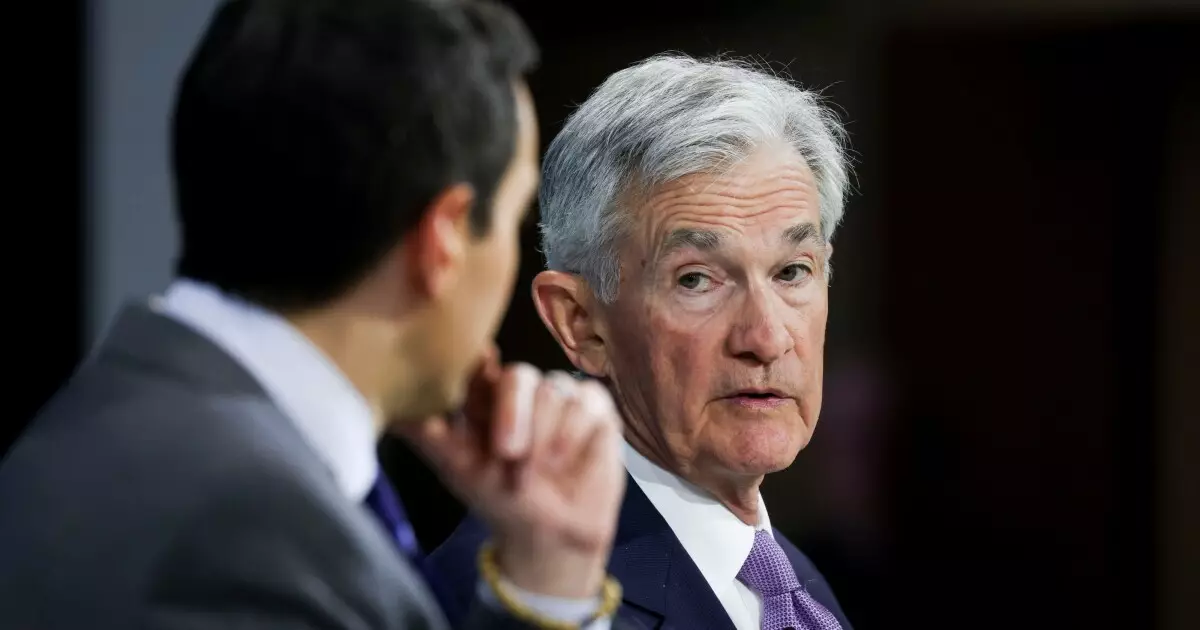In the complex sphere of U.S. financial governance, the Federal Reserve plays a pivotal role. Federal Reserve Chair Jerome Powell recently addressed concerns regarding the potential undermining of his authority through the emergence of a “shadow chair” during the Trump administration. While some experts suggest that Trump’s ascent may lead to conflicts over monetary policy, Powell expressed that such fears are unfounded. In an interview with Andrew Ross Sorkin during the New York Times’ Dealbook Summit, he conveyed confidence in his ability to maintain professional relationships with the incoming administration.
The notion of a shadow Fed chair was introduced by Scott Bessent, who was rumored to be in line for the Treasury Secretary position. Bessent’s comments, which posited that early announcements of a new Fed chair could dilute Powell’s influence during the latter part of his term, stirred the pot of speculation regarding the independence of the Fed. Powell, however, asserted, “I don’t think that’s on the table at all,” emphasizing the importance of trust and respect between the Federal Reserve and the Treasury Department.
Powell reinforced the historical significance of the Fed-Treasury relationship, which has thrived for over seventy-five years. He remarked that regular meetings between the Treasury Secretary and the Fed Chair foster a constructive relationship essential for effective governance, particularly during economic crises. The dialogue should ideally foster collaboration while still recognizing the boundaries that allow each institution to operate independently.
Despite past statements from Trump, who has expressed a desire for increased control over monetary policy, Powell declined to engage directly with the President’s positions. Instead, he underscored the fundamental principle of monetary independence: the Fed should operate free from political pressures to serve the best interests of the American economy, rather than the desires of any particular political party.
The complexity of maintaining independence while navigating political landscapes cannot be overstated. Powell provided clarity on what it means for the Federal Reserve to hold such independence, explaining that decision-making autonomy is critical for maintaining economic stability. “That’s what independence means and that’s what gives us the ability to make these decisions for the benefit of all Americans at all times,” he stated.
This assertion speaks volumes about the challenges faced by central banks worldwide, where political interference can lead to inconsistencies that impact economic growth. Powell’s comments reflect a commitment to preserving that autonomy, even as he acknowledges the pressures of the current political climate.
In discussing President Trump’s promise to implement tariffs, Powell highlighted the uncertain economic landscape that officials are currently navigating. He admitted that it was premature to speculate on policy adjustments due to the unpredictable nature of proposed tariffs, which could vary widely in terms of size, scope, and duration. Powell emphasized the necessity of focusing on the present economic situation rather than preemptively adjusting policies based on hypothetical scenarios.
This approach indicates not just prudence, but also a readiness to react to economic currents as they unfold. The Fed’s reliance on real-time economic data underscores the institution’s commitment to informed and strategic decision-making.
As innovations such as cryptocurrency continue to disrupt traditional financial systems, Powell expressed the Fed’s approach to this emergent challenge. He acknowledged that while the Federal Reserve’s role is primarily to regulate and supervise banks, it must also remain cognizant of the interactions between traditional banking and digital assets. Powell articulated a clear stance on the need for stability within the banking sector, ensuring that crypto activities do not endanger the financial ecosystem.
By prioritizing consumer protection and clarity in transactions involving digital assets, Powell’s leadership reflects a forward-thinking approach in adapting to rapidly evolving financial technologies. This dynamic illustrates a balancing act between fostering innovation while ensuring the health and soundness of the broader banking system.
Jerome Powell remains steadfast in his commitment to maintaining the Federal Reserve’s independence against the backdrop of political dynamics. His insights into the importance of collaboration with the Treasury Department, the navigation of economic uncertainties due to tariffs, and the regulation of cryptocurrencies demonstrate a nuanced understanding of the responsibilities at hand. As the Fed enters a new chapter under a potentially disruptive administration, Powell’s resolve and approach may be crucial in steering American economic policy through these challenging waters.

